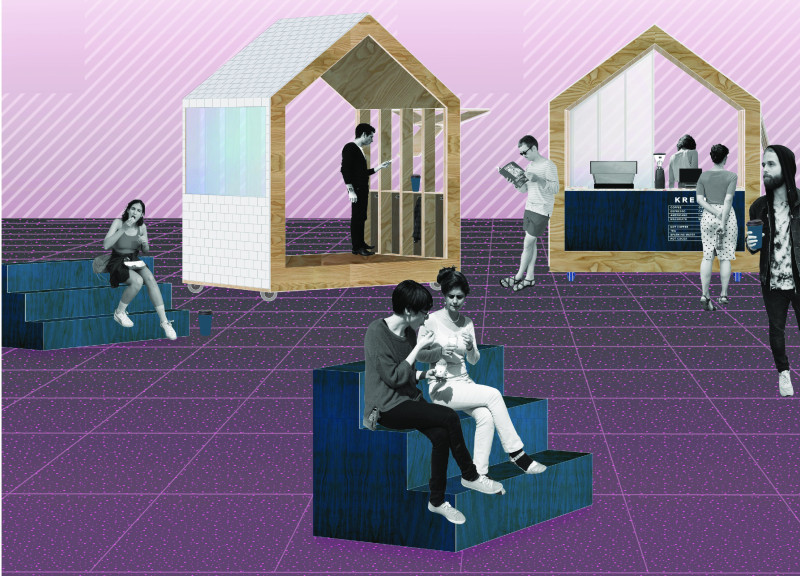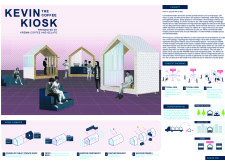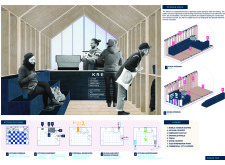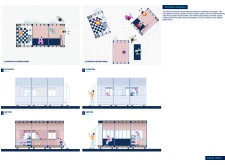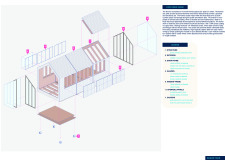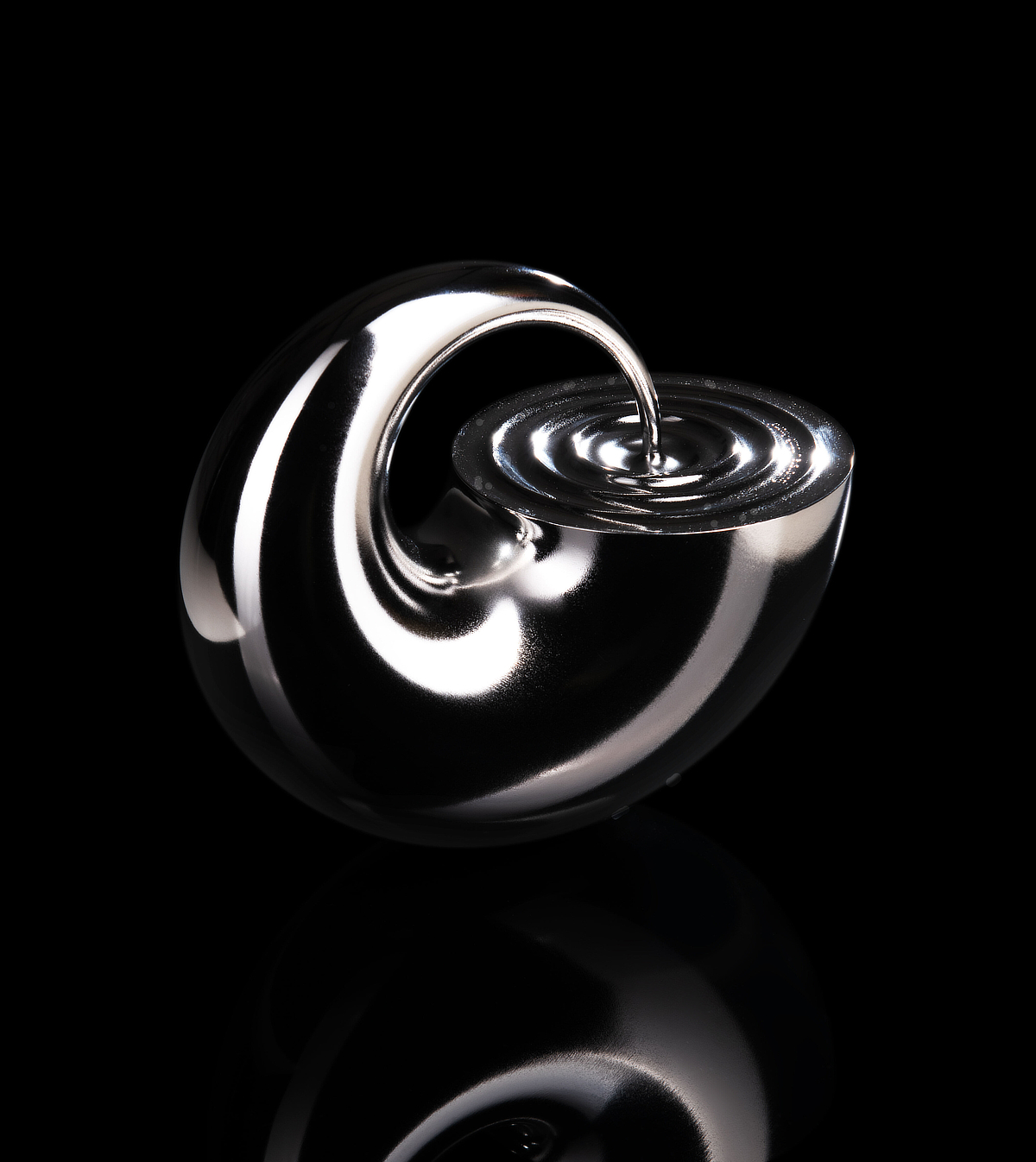5 key facts about this project
Kevin the Coffee Kiosk rethinks the typical kiosk by creating a space that blends service with community interaction. Located in an area where people gather, the design serves as a coffee stop while encouraging connections among visitors. It emphasizes the importance of creating an inviting environment that balances efficiency in service with the need for social engagement.
Modular Design
The kiosk consists of three connected modules, offering both flexibility and functionality. Each part can work independently or as a cohesive unit. This design allows for adjustments based on the specific location or event. It can cater to different crowd sizes and times of the day, making it practical for various scenarios.
Spatial Organization
The layout thoughtfully separates public areas from those designated for staff. There is a clear entrance and exit for customers, along with a different access point for the kitchen staff. This clear circulation reduces bottlenecks and keeps service flowing smoothly. By including social seating in its design, the kiosk promotes warmth and engagement, allowing visitors to interact comfortably with one another.
Materiality
Material choices significantly influence the kiosk's appearance and atmosphere. Inside, the use of plywood for the walls and ceiling brings a sense of warmth. The engineered wood flooring is durable, ensuring longevity against wear and tear. The kitchen features a terrazzo counter, practical for busy service. On the outside, the iridescent acrylic adds visual interest while also being sturdy enough to withstand vandalism.
Logistics and Mobility
The kiosk is designed for easy transport, mounted on a larger vehicle for relocation. It has high-capacity casters that allow it to be moved with minimal effort, making it suitable for different events or locations.
The detachable stadium seating, complemented by a pitched roof, enhances the kiosk's versatility by allowing outdoor use. This feature connects the space with its surroundings, inviting people to pause, enjoy their coffee, and connect with others.


